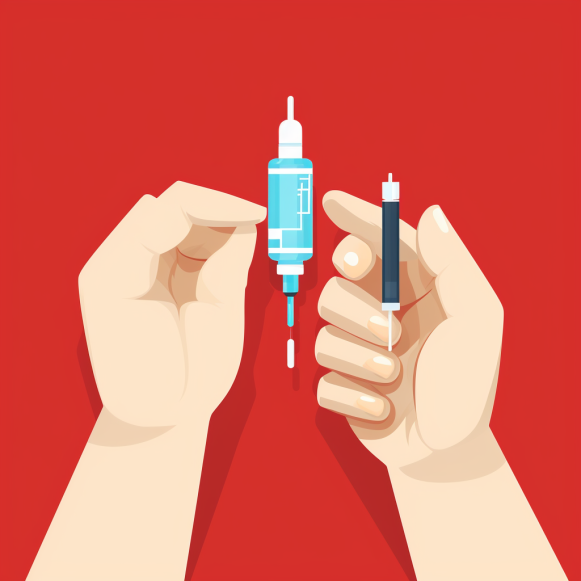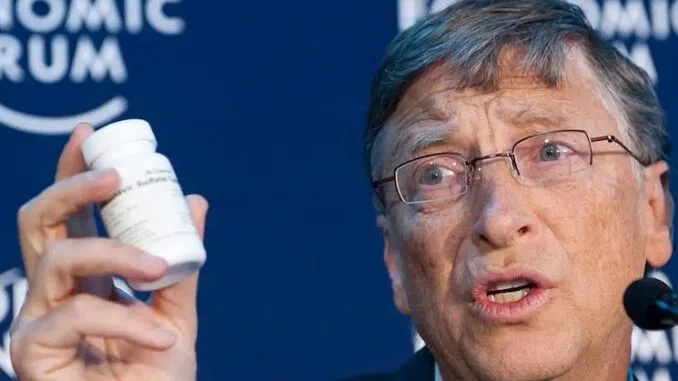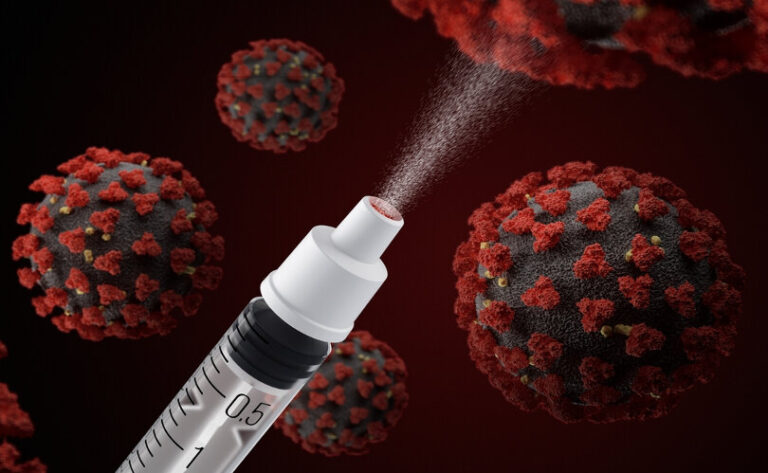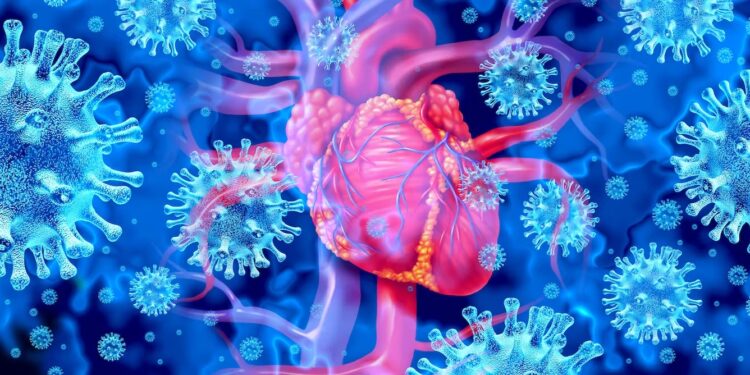COVID-19 Boosters Linked to Blood Sugar Spikes in People With Type 1 Diabetes: Study

Following a case of dangerously high glucose levels in a patient following a COVID-19 booster shot, Johns Hopkins physicians dug deeper, uncovering a subtle but significant link between the booster and short-term blood sugar spikes in adults with Type 1 diabetes.
First Hint of a Problem
A 24-year-old woman with Type 1 diabetes who was normally managed on 45 units of insulin per day was rushed to the emergency room in the summer of 2021. Her blood glucose levels were alarmingly high and unresponsive to her regular insulin protocol, her heart pounding and breathing rapidly.
During her first day in the hospital, she needed 220 units of insulin delivered through her veins, which was nearly five times her usual dose. Her body began to cooperate by the third day, with her glucose levels gradually declining.
Doctors were perplexed by the sudden rise in blood glucose levels and ruled out COVID-19 and possible infections for the woman suffering from diabetic ketoacidosis (DKA).
The mystery persisted until Dr. Mihail “Misha” Zilbermint, a Johns Hopkins endocrinologist, pointed out an important detail: the patient’s sudden surge occurred just a day after receiving her COVID-19 booster shot.
“I thoroughly reviewed the case, looking for any potential causes of DKA.” Except for the recent COVID-19 shot, nothing seemed out of the ordinary. It triggered a “aha moment,” Dr. Zilbermint told The Epoch Times. “I raced home on my bike and, still in my cycling gear, urgently called my colleague, exclaiming, ‘You won’t believe this!'”
Launching the Investigation
Following this incident, which was echoed by other anecdotal accounts, Dr. Zilbermint spearheaded an investigational study, assembling a team at Johns Hopkins to investigate the effects of COVID-19 booster shots on glucose levels in this demographic.
The study gathered 21 adult participants with Type 1 diabetes—eight received the Moderna vaccine and 13 received the Pfizer-BioNTech booster—and examined changes in their glycemic control and insulin usage around the time of vaccination. The study used Dexcom G6 Pro continuous glucose monitors for ten days to accurately track any changes in glucose levels before and after vaccination.
Dr. Andrew Demidowich, assistant professor in the Division of Endocrinology at Johns Hopkins Medicine, told The Epoch Times, “To my knowledge, we are the first to explore COVID-19 boosters’ impact on glucose, using 24-hour data from real-time continuous glucose monitoring.”
The study revealed a noticeable change in glucose levels following vaccination in people with Type 1 diabetes. The average glucose level of participants increased from 163 to around 173 just a few days after vaccination, a statistically significant increase that is unlikely to be due to chance. Researchers also observed a brief increase in insulin resistance, implying that the body was not utilizing insulin as effectively as usual.
While the study found that COVID-19 booster vaccines had a minor impact on glucose control, increasing it by an average of 6%, Dr. Demidowich highlighted an important finding: “One in four participants experienced a pronounced surge in blood sugar levels post-booster.”
However, the study authors state that the COVID-19 booster remains safe and well tolerated for the majority of patients, which is consistent with previous research on the primary vaccine series. Dr. Demidowich anticipates a possible, albeit likely milder, blood sugar surge following vaccination in people with Type 2 diabetes, necessitating further research into the nuanced interplay between vaccinations, immune responses, and glucose control across diabetes types.
This investigation coincides with the CDC’s updated guidelines, which recommend annual COVID-19 vaccinations for anyone over the age of six months. The CDC is changing the term “booster” to “annual vaccination,” reflecting an adaptive response to the virus’s ongoing evolution and drawing parallels with the flu virus.
Deeper Dive into the Causes
According to Dr. Demidowich, the link between a spike in glucose levels among Type 1 diabetics following a COVID-19 booster isn’t entirely surprising.”Vaccines are designed to provoke an immune response, which induces an inflammatory reaction—known to alter insulin signaling and glucose regulation considerably,” Demidowich wrote in a statement. Disruptions such as toothaches or impending infections typically result in an increase in glucose levels in people with diabetes.
Although the study supports the theory that insulin resistance is a key driver of hyperglycemia, it does not provide a definitive answer.
The team acknowledges the possibility of other contributing factors without quantifying inflammatory markers. According to the authors of the study, “The temporary elevation in glucose levels could be directly related to inflammatory mechanisms, or perhaps to other influences, such as changes in appetite or physical activity levels post-vaccination.”
Vaccination-related side effects such as feeling ill, reduced physical activity, disrupted eating habits, or disturbed sleep all have an impact on glucose dynamics. Dr. Demidowich hypothesizes that any of these factors could influence glucose levels after a vaccine booster, creating a complex picture that necessitates further investigation.
Keeping Blood Sugar in Check After Vaccination
Because of the body’s inherent immune response, those with diabetes must be cautious of potential glucose level spikes following COVID-19 vaccinations, as well as all vaccines.
“While COVID-19 vaccines had no effect on glycemia, other vaccines such as influenza, Tdap, or pneumococcal may have different effects.” “It’s critical to identify patients who are predisposed to severe post-vaccination hyperglycemia, or DKA,” Dr. Zilbermint said.
Understanding diabetic ketoacidosis (DKA), including recognizing symptoms and knowing how to respond, is critical. Initial DKA symptoms include pronounced thirst and frequent urination, with rapid progression to severe symptoms such as fruity-scented breath, muscle aches, headaches, nausea, and fatigue, to name a few.
“Healthcare professionals should offer detailed information on the vaccine’s potential impact on blood glucose,” Dr. Zilbermint continued, adding that doctors should conduct a pre-vaccination assessment, evaluating the patient’s diabetes management plan to ensure it is well controlled.
According to Dr. Demidowich, a strategic post-vaccine plan is essential, especially during the first five days after the shot. He emphasizes the importance of regular glucose testing, a solid insulin-adjustment strategy, and establishing a clear cut-off point for when to seek professional help, ensuring a safety net for the potentially turbulent glycemic aftermath of vaccinations.





